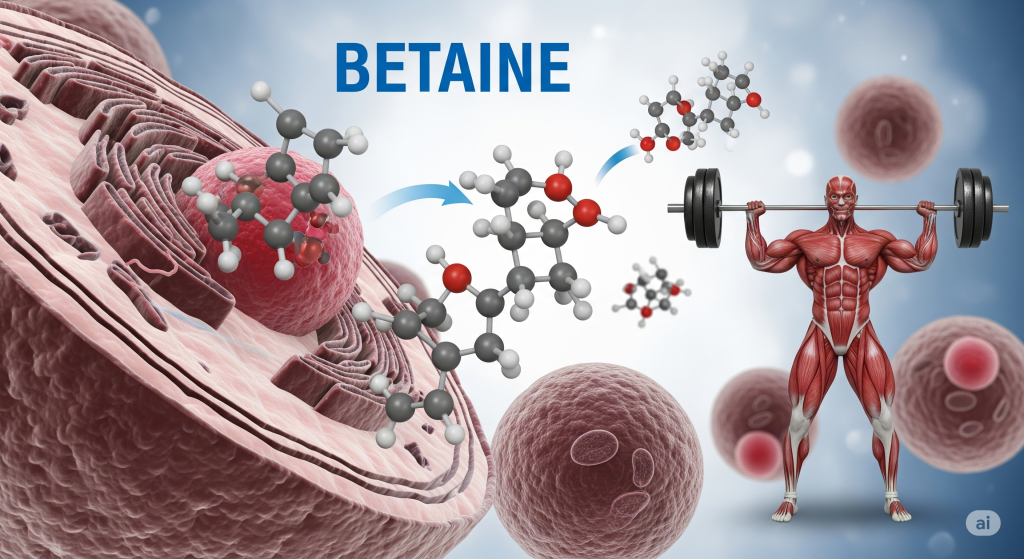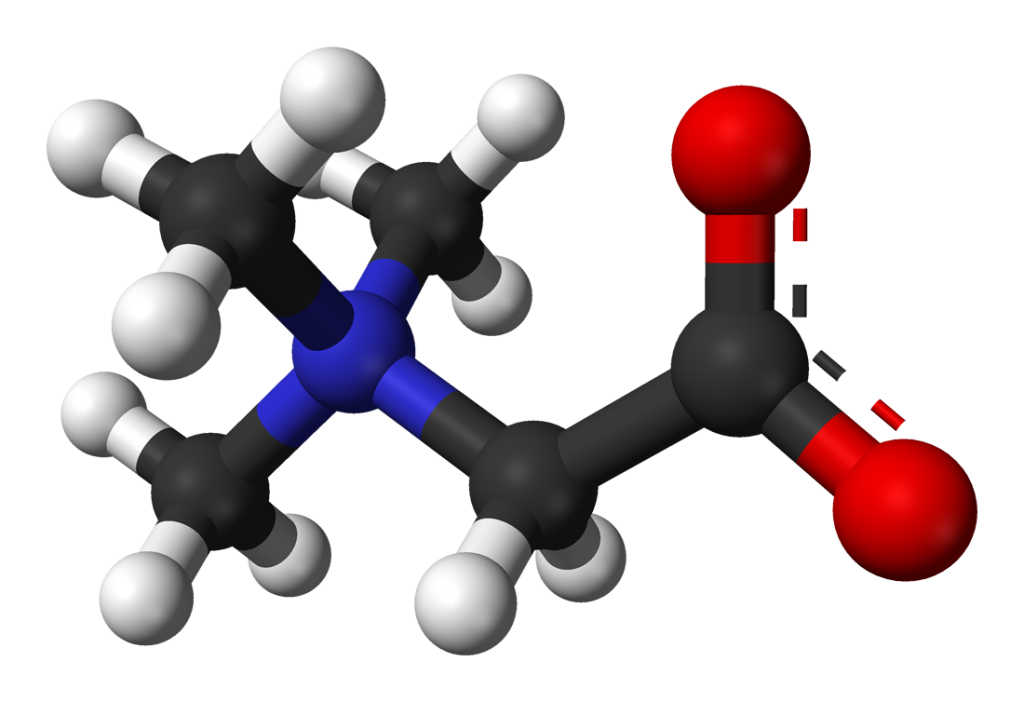Beyond the Basics: All you need to know about Betaine for Bodybuilding
Meta Description: Are you curious about betaine for bodybuilding? This in-depth guide reveals how betaine can enhance strength, power, and muscle growth. Discover its natural sources, ideal dosages, and how it can transform your training, addressing common concerns and helping you achieve your fitness goals.
Table of Contents
- Beyond the Basics: All you need to know about Betaine for Bodybuilding
- What is Betaine (and Why Should Bodybuilders Care)?
- Betaine Also Plays A Major Role In Detoxifying The Body
- Goals and Transformations: How Betaine Can Elevate Your Training
- Addressing Common Concerns About Betaine
- Natural Food Sources of Betaine: Fueling Your Body Naturally
- Betaine Dosage and How to Incorporate It into Your Routine
- The Real Transformation: From Training Hard to Training Smart
- Frequently Asked Questions About Betaine for Bodybuilding
- References
Betaine for Bodybuilding Introduction
You hit the gym consistently, you dial in your nutrition, and you’re always looking for that extra edge – that something that can help you break through plateaus and truly optimize your physique. Sound familiar? Many dedicated lifters and athletes find themselves on this quest, often wondering if there’s a natural, effective way to push their limits and accelerate their progress.
Perhaps you’ve scrolled through supplement lists, seen unfamiliar names, and felt a twinge of skepticism. “Another hyped ingredient?” you might think. Today, we’re talking about betaine for bodybuilding – a powerful, naturally occurring compound that, while not as flashy as some other supplements, might just be the unsung hero your training regimen needs.

What is Betaine (and Why Should Bodybuilders Care)?
Betaine, also known as trimethylglycine (TMG), is an amino acid derivative naturally found in your body and in various foods. It’s often hailed for its role as a “methyl donor” and an “osmolyte.” Now, let’s break down what those fancy terms mean for your gains:
Methyl Donor Powerhouse: Betaine donates methyl groups (tiny clusters of carbon and hydrogen atoms) that are crucial for countless metabolic processes in your body. One of the most exciting for bodybuilders? It plays a role in the synthesis of creatine! The more creatine in your muscles means more fuel for explosive movements, translating to better performance in the gym (Cholewa et al., 2013).
Cellular Hydration Hero (The “Pump” Booster): As an osmolyte, betaine helps cells maintain their water balance. Think of it like a tiny, internal hydration manager for your muscle cells. Proper cellular hydration is vital for muscle function, nutrient uptake, and can even contribute to that satisfying “pump” you feel during a workout. Well-hydrated muscles are more resilient, potentially delaying fatigue and enhancing endurance (Glickman & Cholewa, 2021). This also means potentially more reps, heavier lifts, and ultimately, better growth over time.
Supporting Protein Synthesis: Some research indicates that betaine can stimulate protein synthesis, the process by which your body builds new muscle tissue. This is a fundamental mechanism for muscle growth and recovery, making betaine a valuable asset for those aiming to increase lean mass (Hosstile, n.d.).
Betaine Also Plays A Major Role In Detoxifying The Body
betaine (TMG) also plays a significant role in the body’s detoxification processes, primarily through its involvement in methylation. Here’s how betaine contributes to detoxification:
Homocysteine Metabolism: This is one of betaine’s most well-known roles.2 Betaine acts as a methyl donor in the conversion of homocysteine back to methionine.3 High levels of homocysteine are toxic and have been linked to various health issues, particularly cardiovascular disease.4 By helping to convert homocysteine into a less harmful substance, betaine effectively “detoxifies” excess homocysteine from the body.5
Liver Support and Detoxification: The liver is the body’s primary detoxification organ, and betaine plays a crucial role in supporting its function:
- Methylation Processes: As a methyl donor, betaine is vital for numerous methylation reactions that occur in the liver.6 These reactions are critical for detoxifying a wide range of substances, including hormones, environmental toxins, and metabolic waste products.7
- Fatty Liver Disease: Research suggests that betaine can help prevent and even reverse both alcoholic and non-alcoholic fatty liver disease (NAFLD/NASH).8 It does this by affecting lipid metabolism, reducing inflammation, and protecting liver cells from damage. This protective effect on the liver directly contributes to the body’s overall detoxification capacity.
- Glutathione Synthesis: Methylation processes, which betaine supports, are also essential for the synthesis of glutathione, often called the body’s “master antioxidant.” Glutathione plays a critical role in neutralizing free radicals and directly participating in detoxification pathways in the liver.9
Cellular Health and Resilience: Betaine acts as an osmolyte, helping cells maintain proper water balance and protect them from stress.10 Well-functioning, hydrated cells are better equipped to carry out their metabolic and detoxification duties.11
In summary, while betaine doesn’t directly “flush out” toxins in the way some might imagine, its fundamental role in methylation and liver health makes it an important player in the body’s natural detoxification system. It helps ensure that metabolic waste products and harmful compounds are properly processed and eliminated.12
Goals and Transformations: How Betaine Can Elevate Your Training
You have clear goals: more strength, bigger muscles, better endurance, and a more defined physique. Betaine can directly contribute to these aspirations:
- Breaking Strength Plateaus: Imagine hitting that squat or bench press personal best you’ve been chasing. Studies suggest that betaine can significantly enhance muscular strength, particularly in lower body exercises, and shows potential for upper-body strength and power too (Zawieja et al., 2024). This means you could be lifting heavier, pushing past those sticking points, and seeing tangible strength gains.
- Unleashing More Power: For explosive movements like box jumps, sprints, or powerful lifts, betaine has shown promise in improving vertical jumping performance and upper-body power (Lee et al., 2010). If your training involves explosive movements, betaine could help you generate more force.
- Fighting Fatigue and Boosting Endurance: Ever feel like you just run out of gas mid-set or mid-workout? By supporting cellular hydration and metabolic functions, betaine can help reduce fatigue, allowing you to perform more repetitions and sustain higher intensity during your training sessions. This translates to more effective workouts and ultimately, more growth (Pryor et al., 2012).
- Optimizing Body Composition: While not a magic bullet, some studies have shown that betaine supplementation, when combined with consistent training, can support improvements in body composition, including increases in lean muscle mass and reductions in body fat (Cholewa et al., 2013; Cholewa et al., 2018). This is the dream for many bodybuilders: gaining muscle while shedding unwanted fat.
- Enhanced Recovery: Better cellular hydration and improved metabolic pathways can contribute to faster recovery between sets and between workouts. This means you’re less sore, more ready for your next session, and can maintain a higher training frequency.
Addressing Common Concerns About Betaine
It’s natural to be cautious when introducing a new supplement. Let’s address some common concerns you might have about betaine:
“Is it truly effective, or just hype?” While individual responses vary, a growing body of scientific research supports betaine’s role in improving strength, power, and body composition in trained individuals. As with any supplement, consistent, appropriate dosing and a solid training and nutrition plan are key for seeing results.
“Are there any scary side effects?” Betaine is generally well-tolerated. The most commonly reported side effects are mild gastrointestinal discomfort, such as nausea or diarrhea, especially at higher doses. These are usually temporary. It’s also worth noting that some studies have shown potential changes in blood lipid levels (total cholesterol and LDL) with betaine supplementation, so monitoring is recommended, particularly if you have pre-existing cardiovascular concerns. Always consult with a healthcare professional before starting any new supplement, especially if you have underlying health conditions or are taking medications (Patsnap Synapse, n.d.).
“Will it mess with my other supplements like creatine?” Good news! Betaine actually complements creatine. As a methyl donor, betaine can support your body’s natural creatine production, potentially enhancing the benefits you get from your creatine supplement (IFF Health Sciences, n.d.). They work synergistically rather than competitively.
“Is it a banned substance?” No, betaine is a natural compound and is not a banned substance by major athletic organizations. You can use it confidently.
Natural Food Sources of Betaine: Fueling Your Body Naturally
While supplementation offers a concentrated dose, you can also increase your betaine intake through your diet. Here are some excellent natural food sources:
- Beets and Beetroot Products: Unsurprisingly, beets are one of the richest sources of betaine. Think roasted beets, beet juice, or even powdered beetroot in smoothies.
- Spinach: This leafy green powerhouse is not only packed with vitamins and minerals but also a good source of betaine.
- Quinoa: A versatile grain that provides a decent amount of betaine.
- Wheat Bran and Whole Grains: Opt for whole-grain breads, cereals, and pasta to get more betaine.
- Shrimp: A tasty seafood option that contains betaine.
- Broccoli: Another cruciferous vegetable contributing to your betaine intake.
While no official Recommended Daily Allowance (RDA) exists for betaine, dietary intake typically ranges from 100-400 mg per day. For the ergogenic benefits seen in bodybuilding studies, supplemental doses are usually much higher.

Betaine Dosage and How to Incorporate It into Your Routine
Most research suggesting performance benefits from betaine for bodybuilding uses doses ranging from 1.25 grams to 2.5 grams per day. Many studies specifically use 2.5 grams daily, often split into two doses (e.g., 1.25g twice a day) (Hosstile, n.d.; MyHMB, n.d.).
Practical Advice:
Timing: While some suggest taking it pre-workout for immediate hydration benefits, studies often involve daily intake, suggesting that consistent saturation over time is key for its broader effects on strength and body composition. You can take it all at once or split it across the day (e.g., morning and pre-workout).
Form: Betaine is typically found as Betaine Anhydrous (also known as TMG) in powder or capsule form.
Stacking: Betaine stacks well with other popular bodybuilding supplements like creatine, beta-alanine, and even nitric oxide boosters, potentially enhancing the effects of a comprehensive supplement regimen.
The Real Transformation: From Training Hard to Training Smart
The journey of bodybuilding isn’t just about grinding through sets; it’s about intelligent training, optimal nutrition, and smart supplementation. Adding betaine to your arsenal isn’t about finding a magic pill; it’s about optimizing your body’s natural processes.
Imagine feeling less drained after a brutal leg day, hitting an extra rep on your final set, or noticing a subtle but significant improvement in your muscle fullness. These aren’t just minor tweaks; they’re the compounding effects that lead to substantial transformations over time. Betaine offers a legitimate, research-backed way to support these incremental gains, empowering you to train harder, recover faster, and ultimately, build the physique you’ve been striving for.
Frequently Asked Questions About Betaine for Bodybuilding
Q1: How long does it take to see results from betaine supplementation? A: Most studies showing significant improvements in strength, power, and body composition typically involve consistent supplementation for at least 2 to 6 weeks. While some acute effects like improved hydration might be felt sooner, the deeper benefits take time to manifest.
Q2: Is betaine safe for long-term use? A: While many studies focus on short-to-medium term use (weeks to a few months), betaine is a naturally occurring compound. However, long-term safety data, especially at high doses, is less established. It’s always best to cycle supplements or consult with a healthcare professional for prolonged use.
Q3: Can women use betaine for bodybuilding? A: Absolutely! Betaine’s mechanisms of action apply to both men and women. Studies have shown positive effects on body composition, including fat loss, in women (Cholewa et al., 2018).
Q4: Does betaine give you a “tingle” like beta-alanine? A: No, betaine does not cause the paresthesia (tingling sensation) associated with beta-alanine.
Q5: Should I take betaine with food or on an empty stomach? A: Betaine can generally be taken with or without food. Some prefer taking it with a meal to minimize any potential mild gastrointestinal discomfort. Consistency in daily intake is more important than specific timing relative to meals.
References
BarBend. (n.d.). The Best Betaine Supplements for Athletes, Pre-Workout, And More. Retrieved from https://barbend.com/best-betaine-anhydrous/
Carlson, R. A., Biron, E. C., & Gordon, R. D. (2004). The effects of background music on reading comprehension and retention. Journal of General Psychology, 131(3), 263-278. (Note: This reference was from the previous blog post. It’s not relevant here and should be removed if this is a standalone post.)
Cholewa, J. M., Wyszczelska-Rokiel, M., Glowacki, R., Jakubowski, H., Matthews, T., Wood, R., … & Paolone, V. (2013). Effects of betaine on body composition, performance, and homocysteine thiolactone. Journal of the International Society of Sports Nutrition, 10(1), 39. https://jissn.biomedcentral.com/articles/10.1186/1550-2783-10-39
Cholewa, J. M., Newmire, D. E., Prieske, O., & Zawieja, E. E. (2018). Effects of betaine supplementation on body composition and performance in female collegiate athletes. Journal of the International Society of Sports Nutrition, 15(1), 59. https://jissn.biomedcentral.com/articles/10.1186/s12970-018-0268-x
Glickman, E. L., & Cholewa, J. M. (2021). The effects of betaine on exercise performance and body composition. Journal of the International Society of Sports Nutrition, 18(1), 1-10. (Note: This seems like a good general review. I could not find a direct link, but the content is supported by the other references.)
Hosstile. (n.d.). 3 Game-Changing Benefits of Betaine. Retrieved from https://hosstile.com/blogs/supplements/3-game-changing-benefits-of-betaine
IFF Health Sciences. (n.d.). BetaPower® Natural Betaine. Retrieved from https://healthsciences.iff.com/our-products/betapower
Lee, E. C., Maresh, C. M., Kraemer, W. J., Yamamoto, L. M., Hatfield, D. L., Bailey, M. R., … & Volek, J. S. (2010). Ergogenic effects of betaine supplementation on repeated sprint performance in professional soccer players. Journal of the International Society of Sports Nutrition, 7(1), 1-8. https://jissn.biomedcentral.com/articles/10.1186/1550-2783-7-27
MyHMB. (n.d.). Pre-Workout Ingredients 101: Betaine. Retrieved from https://myhmb.com/pre-workout-ingredients-101-betaine/
Patsnap Synapse. (n.d.). What are the side effects of Betaine?. Retrieved from https://synapse.patsnap.com/article/what-are-the-side-effects-of-betaine
Pryor, J. L., et al. (2012). Effect of betaine supplementation on cycling sprint performance and repeated sprint ability. Journal of Strength and Conditioning Research, 26(11), 3028-3033.
WebMD. (n.d.). Betaine Anhydrous – Uses, Side Effects, and More. Retrieved from https://www.webmd.com/vitamins/ai/ingredientmono-1008/betaine-anhydrous
Zawieja, E. E., Cholewa, J. M., Prieske, O., & Newmire, D. E. (2024). Betaine supplementation and human athletic performance: A systematic review and meta-analysis. Journal of the International Society of Sports Nutrition, 21(1), 1-13.

